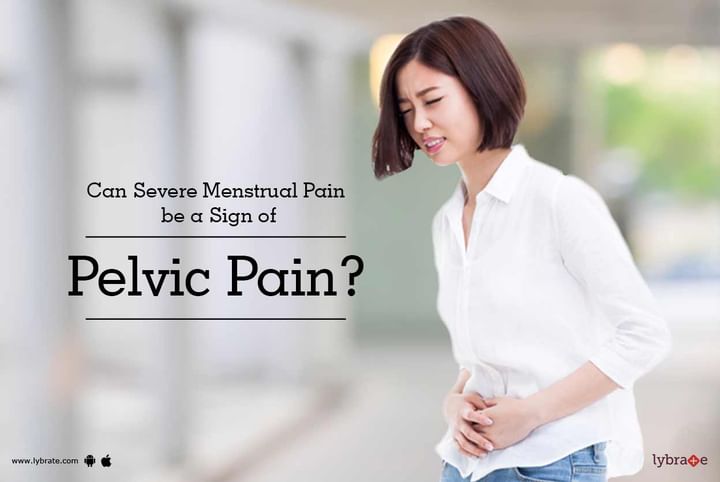Can Severe Menstrual Pain be a Sign of Pelvic Pain?
If there is a recurrent pain in the lower pelvic and the lower abdomen region of the body, chances are you might be suffering from pelvic pain. In women, severe pelvic pain can be a warning sign of some internal damage in the reproductive organs (ovaries, fallopian tube, uterus, and vagina) present in the pelvic region or the digestive system of the body. Although not common in men, pelvic pain might be indicative of an infection or severe pain in the colon region or the pelvic bones. Pelvic pain might be acute or chronic in nature and the pain might spread to the thighs and buttocks of the body.
The causes of pelvic pain differ among the genders, which are as follows:
1. For women, pelvic pain can be an indication of more serious disorders in the internal reproductive organs such as uterine cancer, cervical cancer, ovarian cysts, ovarian cancer and other pelvic inflammatory diseases (when the sexually transmitted bacteria spread to the reproductive organs and causes infections).
2. In women, pelvic pain might also occur due to endometriosis (a disorder wherein the internal endometrial tissues grow outside the uterus resulting in severe pain), adenomyosis (a disorder wherein the endometrial tissues which line the wall of the uterus start growing within the uterus), severe pain during ovulation and miscarriages.
3. The causes of pelvic pain in both men and women include sexually transmitted diseases, a disorder in the pelvic region or the bladder, kidney stones, urinary tract infection, colon cancer, and chronic hernia.
If you suffer from the following symptoms, chances are you might be suffering from pelvic pain:
1. Severe pain in the hips and the groin
2. Sudden fever along with the presence of blood in the stool.
3. Severe menstrual pain
4. You might feel severe pain while urinating or in the middle of a sexual intercourse
5. Bloody vaginal discharge might be indicative of pelvic pain in women
6. Recurring episodes of constipation or diarrhoea
7. Pain resulting from stress and intense physical movements
Treatment
If the pain is chronic, doctors might suggest prescribed a dosage of birth-control pills, antibiotic (especially for blood in the stool and pain due to infection) and anti-depressants. In extreme conditions, the doctor might prescribe laparoscopic surgery (operation by making minor incisions performed far from the actual source).



+1.svg)
